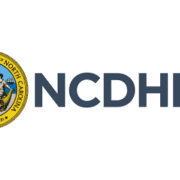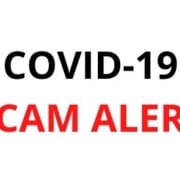Executive Order Extends School Immunization, Health Assessment Deadlines
100.1 FM ~ 1450 AM ~ WIZS, Your Community Voice ~ Click to LISTEN LOCAL
-Press Release, NCDHHS
North Carolina Governor Roy Cooper issued Executive Order 156 extending, but not waiving, proof-of-immunization and health assessment documentation deadlines for school and child-care facilities. With health care visits limited in some cases due to the ongoing COVID-19 pandemic, the order will give students and families more time to get their required vaccines and health assessments completed.
“With kids headed back to school and flu season right around the corner, it’s more important than ever this year for all North Carolinians to get their recommended immunizations,” said NCDHHS Secretary Mandy Cohen, M.D. “Childhood immunizations keep kids safe and protect public health by lowering the likelihood of an outbreak of a vaccine-preventable disease like measles.”
The Executive Order and a State Health Director Memo issued by State Health Director Dr. Elizabeth Tilson will extend, but not waive, North Carolina’s current proof-of-immunization requirement deadlines for students enrolled in public, private or religious educational institutions, including child care facilities and K-12 schools as well as colleges and universities. The Executive Order also extends the deadline for each child entering a North Carolina public school for the first time to submit a school health assessment.
In typical years, proof of required immunizations and health assessments are required within 30 days of the first date of attendance of school. After the 30 days, children are to be excluded from school until the family provides documentation of requirements. This year, the 30-day “grace period” for all students will begin on October 1, 2020. The North Carolina Department of Health and Human Services similarly extended immunization and health assessment deadlines in September 2018 during the aftermath of Hurricane Florence.
Whether children are home-schooled or attend school in-person or by remote learning, they are required by state law to be immunized based on their age for certain vaccinations as recommended by the Centers for Disease Control and Prevention (CDC).
School requirements are listed on the NCDHHS website according to school or grade level, as well as the requirements for young children who attend child care facilities. NCDHHS’ Immunization Branch offers comprehensive guidance on immunization recommendations, as well as advice for families on navigating access issues during COVID-19, and is working with local health departments on strategies to increase immunization access.
NCDHHS is collaborating with multiple partners, including the North Carolina Pediatric Society and the North Carolina Academy of Family Physicians, on an awareness campaign to help ensure school-age children are protected from vaccine-preventable diseases. NCDHHS is also partnering with Community Care of North Carolina, NC Area Health Education Centers and others on the Keeping Kids Well program to increase well-child visits and immunization rates for Medicaid beneficiaries younger than 19 years old. Governor Cooper has proclaimed August Immunization Awareness Month in North Carolina to highlight the importance of immunization.
“Immunization Awareness Month and back-to-school season are important reminders to families to make sure their children are up to date on vaccines. If you have any questions about what vaccines are due or how your doctor’s office is responding to COVID-19, reach out to your pediatrician or family physician,” said Susan Mims, MD, MPH, FAAP, president of the North Carolina Pediatric Society. “Whether your children are going back to school in person or virtually, please make sure they are protected from preventable diseases and death.”
Financial concerns should not act as a barrier to childhood immunization. The Vaccines for Children (VFC) program offers free vaccines to families who cannot afford to pay for their children’s vaccines (through 19 years of age), and federal law requires most private insurance plans including Medicaid to cover recommended preventive services such as vaccinations at no out-of-pocket cost.
In order to be fully protected from vaccine-preventable diseases, children should receive all age-appropriate immunizations.
For more information about vaccine-preventable diseases and recommended immunizations, refer to resources from the CDC and its Advisory Committee on Immunization Practices. Parents who are unsure which vaccines their children need can find out by taking a short quiz on the CDC website.



